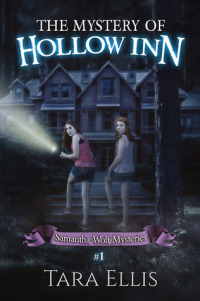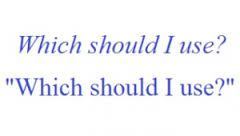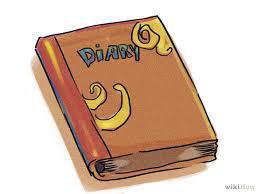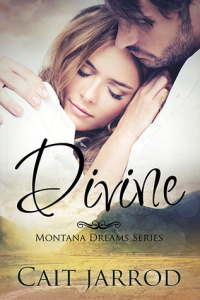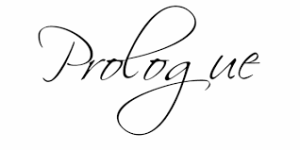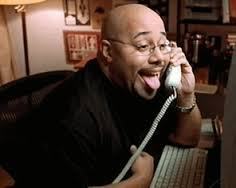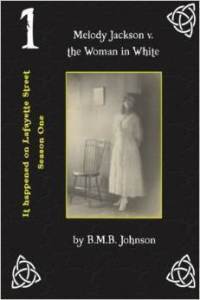Tim Learn's Blog, page 19
November 30, 2015
Treasure (Seed Savers#1)
Treasure (Seed Savers#1)
(Middle Grade/ YA?)
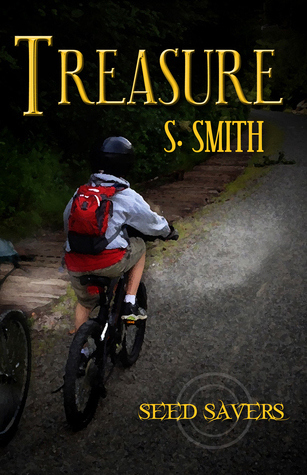
By S. Smith
Rating

Synopsis
Running into an old woman at church, Ana and her little group find out secrets about their world that many have tried to cover up: seeds. Even more so, they learn that all our food once came from them. The only problem now is the government wants to keep it that way.
Prose
Overall, the writing wasn’t poor. There were a few good lines in there with the occasional botched simile or two. One in particular compared something to a lazy cat and I’m still unsure what the author meant by it. But, usually, these bumps don’t bother me so much. What does bother me is poor dialogue! And unfortunately, this book has its fill.
I know, I know—this book is intended for kids. And in that way, it works. Sadly, I’ve heard a few say this is almost YA, though I’d very fairly call it middle grade, and low middle grade at that. The children speak so unnaturally that it feels like screeching in my ears. But there’s more than just that to cause me to hand out such a low score.
Characters
The characters are bland and run of the mill, as expected with such fare. I know many times authors wish to create an ‘everyman’ feel to their characters, and that’s fine, but in order for someone to enjoy it, we need something distinct to latch onto. Like so many other books before, I cannot discern the difference between the two main female characters. The only reason the youngest, Dante, sticks out is because he’s a boy. I really hoped for more.
Structure
Here is where everything goes wrong—and usually does. I was able to see instantly what the author was going for here. With our society slowly eating more and more processed food, sometime in the future, children may not know exactly where our food comes from. On top of that, with ridiculous new laws rewarding ownership over biological entities such as seeds, a strange world where someone owns the right to, say, the apple tree could exist. I think the idea is interesting, almost something Michael Crichton would do—and kind of did in his book Next.
However, in this book, I feel the author didn’t spend enough time realizing the world. So much of it seems disconnected. For one, wherever it is Ana lives doesn’t let anyone grow their own food, yet because New Jersey is such a huge dump, it is okay to do so there.
Added to this is the extremely weak plot. A quintessential element to plotting is tension. This is brought about by having a force to work opposite the protagonist’s goals. Intially, this author has it with her mysterious organization called GRIM. It is a group that tries to squash any homegrown food. Unfortunately, we never get to see them in action. The most we get is them following our heroes and …that’s it. Yikes! Scary!
On top of this, no problem ever surfaces. When I hit one line near the end of the book, I felt it summed up the entire story as a whole. Here it is:
Everything went as planned.
And when that is the summation of a book, you can kind of tell it needs work.
Overall
I think mostly I wanted more from this book. In a way, it felt like a failed eco-version of Fahrenheit 451. Too often things are explained to us, instead of being shown to us, and everything is given such a ‘bad guy’ feel, that a lot is missed. With this, I would’ve loved to see the author create a well-rounded argument dealing with processed food. I understand her viewpoint one hundred percent, but others—including myself—see it otherwise. Creating new hybrid crops and specially processed food is not as bad as its cracked up to be. In a way, the book came off sometimes as preachy, and not so much an adventure that will spark thinking.

To buy, click here.
To check out author’s website, click here.


November 27, 2015
To Beat a Grammarian: Dangling Modifiers
To Beat a Grammarian: Dangling Modifiers
As a writing teacher to ESL students, I don’t much encounter this problem as often as teachers state-side might. My students follow the patterns they’ve learned extensively and try more for quantity than quality. That being said, I do prep all my students with something my university professor told me: good writing is not large words or long sentences. Good writing is getting the most ideas down on paper with the least amount of words possible.
And I know, it’s a hard rule to practice; no less teach. In this way, modifiers are extremely useful. They chop a lot of flack from one’s writing. So let’s take a look.
Running to school, Charles noticed the empty streets. Had school been canceled?
The modifier here is ‘running to school.’ When using a modifier, it is implied that a time clause begins it, like when or while. The other thing that most draw from it is that for both clauses, the subjects are the same. And having the modifier at the beginning of the sentence this is understood clearly; however, sometimes when it is placed at the end, things get a little tricky.
Charles noticed the empty streets, running to school.
Now it appears the streets are running to school. And…you may say that is ridiculous. No one would ever get such a thing confused. And you are right. However, the reader will initially have to stop to make that deduction, and that slight pause throws off the reader’s momentum. Any action that destroys momentum is disastrous because it gives the reader time to decide whether they should keep reading your story or not. Don’t give them that opportunity.
Now check out this common mistake.
Charles noticed a dog, running to school.
Now it is worse. A dog can run to school, so in this situation, if you meant Charles, put the modifier at the beginning of the sentence. Not only will it clear up misunderstandings, it will also create sentence variation, as many newbie writers tend to set the subject as the first word in every sentence. But if you did mean for it to be attached to the dog, fix it by changing it into an adjective clause. Like so:
Charles noticed a dog that was running to school.
The hardest ones to notice—or at least for me—are the dangling modifiers that have different subjects anyways. Every manuscript of mine has one or two. When in the focus of writing, I tend not to notice them. And even after many rereads, they still go overlooked. Like this one:
Hearing the bell, there was nothing left to do.
Here, technically, there is no subject for the ‘hearing the bell’ to attach to. Changing it to a preposition clause is best.
With the bell ringing, there was nothing left to do.
In the end, modifiers aren’t that hard to get ahold of, but if you haven’t experienced them a lot, it can be troubling. Keep your eye out for them, for like I intimated, a dangling modifier is one of the worst possible errors to leave in your writing. Grammarians are the quickest to snap at them.


November 24, 2015
Top Ten Books I’m Thankful For
Wonderful praise for Chewy…Er, Clint, I guess. Thanks!
 Originally posted on Scifi and Scary:
Originally posted on Scifi and Scary:
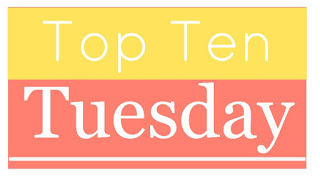
This weekly meme is brought to you courtesy of The Broke and the Bookish.
This was a topic that I kind of dreaded at first, simply because I didn’t want to rehash my favorite books, but I couldn’t think of a unique spin on things. Luckily, though, I came up with something that I think works quite well..
View original 283 more words


November 23, 2015
The Mystery of Hollow Inn
The Mystery of Hollow Inn
(Middle Grade Detective)
By Tara Ellis
Rating
Synopsis
Visiting her Aunt and Uncle on break with her best friend, Sam soon finds herself deep in a mystery. Something has been haunting the inn her Uncle runs. What’s worse is it’s driving all the customers away, but beneath the stories is a true tale of gold, and Sam is determined to find it.
Prose
The writing in the book was lower and acceptable for the grade level. I’d have to say it fits anyone in third or fourth grade. Any higher and they might not find some of the dialogue believable, as I did many times.
The worst part of the writing—and probably one of the deciding factors for the lower grade—is the story is all written in present tense. I’m not sure why the author decided to do so. Most stories of this nature are past tense, and combine it with the dialogue, along with some of the explanatory chunks, especially at the beginning, and everything starts going south. Some authors can pull this off, and when they do, it is sparkling. However, here it just sags and is disruptive.
Characters
As for characters, Sam and Ally come across as loveable little girls, but as they are mentioned as being ‘pre-teen,’ I don’t see their actions or behavior as believable as I would like.
Also, little is done to develop their characters. By the end, I still had no distinct line in my head to which was which. I pretty much allotted them to the ‘main girls’ group—the ones we are supposed to rout for. Besides that, I didn’t feel a difference between them, except for maybe Ally liked her phone a lot—if that is a character trait.
Structure
I liked the structure for the most part. It dove into the mystery quickly, added wonderful details to the backstory along the way, and had hidden twists and turns, overall.
Still I’d have to say I wasn’t impressed with the flow. Many of the events happened by pure coincidence, which when it comes to stories is rather off-putting. If something happens, I want the characters to figure it out or cause it. In the end, even the bad guy was labored, and the reveal uneventful.
Overall
If you’ve read the above critique, you may be wondering why I gave this three and a half stars at all. Well, it had the bones of something good. Had the author switched the tenses, it would’ve been a tighter story. I hope with the following adventures (it is a series), the author puts more thought and planning into the events of the plot. Far too often while I was reading, I felt like I was watching an episode of Scooby Doo, especially in the end. All I was waiting for was the bad guy to say, “And I would’ve gotten away with it too, if it weren’t for those meddling girls,”—which actually, he kind of did.
Check the book out here.
Check out the author’s blog, here.


November 18, 2015
To Beat a Grammarian: Italics
To Beat a Grammarian: Italics
For the most part, it seems most people know how to use italics, but just in case you don’t, here we go.
1) Emphasis
Like many other tools we’ve discussed, italics can emphasize something in writing, usually in the dialogue of characters. Example: she said, “I don’t see why he has to come!”
2) Thinking
Here is one area where a few may misstep. Some just put thoughts with the marker ‘he thought’ or ‘she thought,’ but many stress that it should be italicized with no quotes. For example: He shouldn’t be here, he thought. He should be at home, taking care of his wife.
3) Journals
This almost follows the same suit as above, as most journals and diaries are written in a similar tone to our internal thoughts. Example: My world is done. I can’t take it anymore. Why does he always let Tom do whatever he wants, but me! Me! I can never get away with anything.
Personally, I’d have to say I tend to look at italics as the same as bold text. I don’t much care for it and try to avoid it as much as possible. I prefer the much more subtle forms of emphasis, like the hyphen. I feel the italics is a bit of a nuisance, having to go all the way to the top of the screen just to use it. Nonetheless, I can see when and where it is useful.
November 16, 2015
Divine
Divine
(Coming of Age)
By Cait Jarrod
Rating
Synopsis
A tragic event as kids ties Matt and Trina together, and through the years they never admit to each other how they feel. As time goes by, their feelings strengthen but their resolve to be truthful to one another does not until one day…
Prose
I really wanted to like this book. Even though I tend to read more dynamic or literary based novels, I’m not opposed to a good romance, and yet, the flaws in this book seemed overwhelming.
First of all, the writing was simple, filled with mistakes, and lacked substance. Immediately, the story jumps into the tragedy of Matt losing his mom, and the way his emotions are portrayed and presented to us seem flimsy, being filled with what the author thinks he should feel and not what he most likely felt. Now—true—every person grieves differently. But as I lost my father at roughly the same age as Matt lost his mom, to me, his actions rang false.
On top of that, the author used many words in an inconsistent or wrong manner. For one, she misused words, such as danced, sireness, and the author’s favorite: fisted.
Her mother fisted her hands…
To Fist means to hit with your fists, but the author repeatedly tries to use it to mean make a fist. Then we encounter many wishy-washy or weak descriptions. One of which was regarding Matt’s character where, from Trina’s POV, she says she liked him because he always went with the flow of life. But then, just a page later, Trina admires his no-nonsense attitude. He was her rock. It made no sense. Even when it came to basic metaphors, certain aspects were missing, like below.
A lasso sensation tightened his chest…
Characters
When it came to the characters, things didn’t get much better. Most were flat, self-involved caricatures that reeked of something from bad morning soap operas. The good guys were overly good, and the bad; overly bad—or at least, they weren’t fleshed out.
Take Trina’s horrible parents. They were the stereotypical rich, do-what-I-say, poor-people-are-trash parents. At one point even, the dad scoffs at Matt for not taking his money, by saying, “Wow! Who in this world doesn’t want money?” Over the top—yes—but if the author had spent more time justifying this viewpoint, it could’ve enriched the story.
Added to this, both of the selfish, stuck-up parents’ children—Trina and Bradley—are nothing like their parents. They value morals and humanity, yet nowhere in the story is it explained how the direct genetic offspring of such pricks could turn out so different. Speaking from experience as a teacher, many of my students ring true to either one or both of their parents. I have yet to see a single child that bucks the entire system, and yet this family has two!!! Now if the author were to explain somewhere that they were raised by a wholesome nanny or two distant relatives, then it might make sense, but as is, well, it comes off flat and lifeless.
Structure
When it comes to structure, the biggest flaw was the formatting. This could just be the mobi file the author sent me, and usually I’m not too nit-picky about this kind of thing, but here, it was ridiculous. Half the time, the dialogue would stop and start as if a new paragraph, or was completely misplaced, leaving the reader with the belief that someone new was talking. Check out below.
“Hang back,” Gunny said and jutted his chin toward a wooden table outside the mess hall.
“I’ll get us a few cold ones.”
Then there were the poor POV shifts. As every paragraph had a large space between it and the next, when a POV shift did happen, it looked like nothing more than a new paragraph to the same old POV. Instead, we get a new situation and characters with little or no warning. When the characters weren’t together, it was a little more tolerable, but sometimes it switches mid-scene, which is fine, if it is done right.
Lastly, the author tosses in strange images of mountains mid-story, causing the reader to believe a POV shift is about to occur…and yet it doesn’t. Everywhere I went in the story, I ran into something that jerked me around and frustrated me—two things an author doesn’t want to do to their reader.
Overall
In the end, it could’ve been better. I think one major flaw is the author decided to put her book in the subcategory of ‘coming of age’ which is maybe not appropriate for this material. The events in this story are so gut-wrenchingly normal and predictable for the age set she writes about that many times I felt I was watching an MTV reality show. I don’t consider Real World ‘coming of age.’ If best, this book should’ve been tossed somewhere in the romance grouping because clearly that’s what it was. A coming of age book ends with an epiphany that leads to a new outlook if not a new philosophy on life. At the end of this book, they had sex—and cheesy sex at that. Not quite the note a coming of age tale ends on.
Check out her book, here.
Check out her website, here.


November 14, 2015
To Beat a Grammarian: Ellipses
To Beat a Grammarian: Ellipses
The ellipsis is a handy little tool in a writer’s repertoire, but far too often, it is used incorrectly. Personally, it is one of my favorites, added along next to the dash. It gives a little twang and uniqueness to sentences that any other punctuation mark can’t do—all things in their place and such. So let’s check it out.
The first common misstep with most writers is that they use it too much. Like any punctuation mark—save the period—too much ruins a good thing. Think of exclamation points. Think of dashes. Think of any writing that falls into a repetition. Sometimes, it can create a feeling; other times, a disaster. Hopefully, you will develop your skill at telling which situation you are in.
So how do you use it? What is it exactly for?
1) Hesitation
This is clearly something useful. Most of the time, we see it in dialogue or, if written in first person, it will be in the text as well. A nice ellipsis can hint to the reader a weakness the speaker or narrator has, or a secret they are hiding. Remember, movies and books are different, so to get that little nudge or even a tweak of character to shine through, the ellipsis is a nice go-to. Check it out.
He turned to her. “I…I didn’t want it this way.”
Or
Walking down the platform, I wasn’t paying attention to anything, and then…there he was.
In both situations, it adds a little to each. The first shows pause, regret; while the second shows shock and suddenness. Here, it is used well, but look below what happens if too much.
He turned to her. “I…I didn’t…not this…never this. It’s not…not what I wanted.”
With this, we see the overuse changes the character. He appears weak, not rueful. And though it may be used as a character trait, most of the time, it is best to shy away from this kind of speech. It gets annoying fast.
Another misstep perpetrated by certain authors is a sort of ellipsis echo. They will repeat the prior word with each ellipsis. This gets grating instantly. One book I recently read had characters often speaking in this way and I nearly threw the book across the room. Unfortunately, it was an e-book. So I didn’t. Here’s an example.
“Look! I…I didn’t…didn’t know the cup…cup was yours.”
When using the ellipsis, you can have a slight repetition, like the ‘I…I didn’t…’ but having every other word repeat is exhausting on the reader. It looks more like a stutter than hesitation, so be careful.
2) Missing Information or Trailing Off
I often use it in this manner. I will have characters that are indecisive or conniving speak with ellipses. It reflects greatly their feelings and their nature.
“I just thought, hey, if mom never finds out, then…” he said, shrugging.
or
“I realized early on you were never going to pull the trigger. So I had to take things into my own hands. I had to…well, I have a feeling you already know.”
Hopefully, this has made it a bit clearer for some of those over-users out there. I think one big cause for misunderstanding springs up from the misconception that speech should sound as real as possible. It should—but not that real. The ellipsis is awesome to simulate authentic speech, but try to refrain from all the hemming and hawing most of us do. A simulation is what you’re aiming for, not an exact copy. Even the most famous paintings aren’t usual exact replicas. It’s the faux exactness, the near authenticity that makes it inspiring. So keep that in mind when employing ellipses.


November 12, 2015
The Fine Line of Prologues
The Fine Line of Prologues
To be honest, I never had a problem with prologues. Most of the time, I barely noticed their presence and read them duly as I felt I was supposed to. Now, true, some were less needed than others. One that particularly comes to mind is from the book ‘Timebound.’ In it, we just get a flash-forward to an event near the novel’s end. It felt overdone and left me lost.
In practice, though, that is what a prologue is supposed to be. It must stand outside the main story somehow—either set far into the future or past—or give us a teaser for events to come. And despite others who say they tend to skip them without looking back, I never do so. I just feel that if the author put it there, then there must be a purpose.
But now, I feel differently.
In the past year, I’ve sent multiple manuscripts to publishers, reviewers, and agents. Most all of them have their own unique requirements and demands in how to present your written work to them. Attach it as a file. Put it in the text of the e-mail. Synopsis. No synopsis. And so on. Hey, we all have our peccadillos and preferences. But all of them zero in on one specific part: give us the first ten pages of your manuscript, the first twenty pages, the first chapter, the first two chapters…
Now you begin to see the problem.
If you’ve written a prologue, this is one part of your novel you send along to them and the bad thing is that it takes up quite a bit of that lethal area where readers are thrilled or repulsed by the book. A prologue gives the reader more time to decide to put your book down. And that’s exactly what happens when you send it to an agent or publisher. With a requirement of only ten or so pages, they will only see the prologue and get zero story. Yikes!
For this reason, I am now a convert of the ‘hate prologues’ cause…but it’s a limited membership. I wouldn’t write one again, but I will read them. After all, the writer intended it, and if your name is known enough, you can get away with it. So, get famous first, then prologue the crap out of your books.
November 11, 2015
To Beat a Grammarian: Colon
To Beat a Grammarian: Colon
Unlike other posts, I can firmly say I’ve never had a hankering for the colon. There’s just something about it that feels so cold, so formal—and yet, it’s up in this post’s title. For this reason, I can’t refuse its usefulness. Just saying, other punctuation marks rank higher in my regard. With that said, let’s see what it’s about.
1) Listing
Now, when I describe any of these grammar points, I’m mainly doing so in regards to fiction. Though some of these rules may blur over into everyday writing, my primary concern is with the art of writing. Therefore, the first function of the colon—to produce a list—may not seem so ‘fiction-worthy,’ but it can come in handy, like below.
While his wife was gone, Tom did many things: met Andy—whom his wife specifically hated; went to bed well after the sun was up; and washed not a single dish in the house.
It can be done this way, but for me, I usually just throw a subject onto the appended phrase and slap a period where the colon is. I like tight sentences when I can. To each their own, I guess. The other use of colons is a little more my speed.
2) Emphasis
This is pretty straight forward, but it needs to be seen a bit to fully grasp. Though dashes and other marks highlight certain words or phrases, the colon has a much stronger thrust to it. Check it out.
Remember: you must be home before midnight.
Or
Duly note: her husband never mentioned where he had been. In the future, this would cause problems.
In both of the above, we need to pay extra attention to the fact that the strength aspect comes after the colon and must be accompanied by some phrase or command to show that strength. That is to say, don’t just throw any word out there with a colon.
Spill: his drink went all over the floor.
Though not highly acceptable, it does have a nice ring to it.
Above all, the most useful hint for colon use I’ve found is in regards to what follows it, and only after reading this tidbit, did I realize how true it is. It said: everything that comes after the colon should be fully expected. Makes sense—no? In a way, it’s saying we should already know what kind of information we’re getting, whether it be surprising or something useful.
One last note for something I didn’t know about the colon’s formal use in non-fiction writing: when addressing the recipient of letters, it is best to use a colon instead of a comma Like so:
Dear Mr. Johnson:
This whole time I’ve been tossing the comma on there in an informal manner to most every correspondence I’ve done. It may not seem big to you or me, but in some circles, that’s like saying, “Whassup!” Budweiser-style to your grandfather. Not cool, I guess.


November 9, 2015
Melody Jackson V. the Woman in White
Melody Jackson V. the Woman in White
(Genre Fiction)
By B.M.B Johnson
Rating
Synopsis
Melody has big plans, and they all start with the weather station outside her house. For a young girl, it can be hard, but there is a reason, and she has her parents to help. Unfortunately, there’s something much greater at work with the weather station and soon her whole family finds a mystery no one intended on discovering.
Prose
The writing is wonderful and quirky, depicting the characters’ unique way of thinking and viewpoint of the world in a clear way, as you can see below.
Melody slumped, and more or less gave the impression of a melted candle.
Besides this distinct writing, there were delightfully few flaws or mistakes. Whoever did the editing did a fantastic job. Spotless!
Characters
Clearly, this is where the book shined. Melody is a scatter-brained pre-teen, well versed in her world despite being home-schooled. She is unusual, but not so much so that it doesn’t fit in with the neighborhood around her. It is obvious right away that she’s inherited her unique point of view from her parents—two oddballs in their own right.
No one fills a stereotypical role in this story, which does grant it a great amount of creativity and fun. The father is snarky and witty. The mother is sharp, but boisterous, and all the side characters are menacing, but peculiar. Nobody acts the way you would think they’d act.
Structure
Here’s where I had my problems.
Immediately, I found it hard to get into the story. First off, it had a prelude that was a bit hard to sink into. This was followed by a first chapter, which showed more characterizing than plot. It wasn’t until the father popped up in the second chapter that I actually got to see a bit more appear as for story content. On top of this, the father’s personality is a perfect contrast to Melody’s and highlights her much better than the mother’s.
Once the plot got rolling, it kept on going except for the occasional pauses when characters rambled on tangents or added snarky side notes. For the most part, it was entertaining, but sometimes annoying as I wished it stuck with the story.
On top of this, the chapters were a certain size until midway through when an enormous one was dropped on me, spanning triple the size of other ones. Reviewing over the aforementioned chapter, I noticed a point or two where it could’ve been broken up to add more cohesion to the book flow as a whole.
Lastly, the book ends suddenly with a dramatic twist. I’m not saying that it’s bad, but it feels off for such an oddball cast of characters. Added to this, I was left with little sense of closure. The story greatly feels open-ended. I’m not sure if the writer chose this in order to bring readers back, or if the story continues on in the next installment. Either way, it was unsettling, and I know from experience most readers don’t enjoy being so sorely left on the hook.
Overall
In short, it was fun. The characters cracked me up a lot. They had delightful dialogue and a good amount of witty back-and-forth. Everybody was loveable and convincing in their own weird ways. In the end, I just wished the resolution tied more together and didn’t leave so many unanswered questions. On top of this, I kind of wanted to see more of the army of boys Melody so often references. Seeing them in action would’ve been awesome, especially in the climax.
To check out the book, click here.







